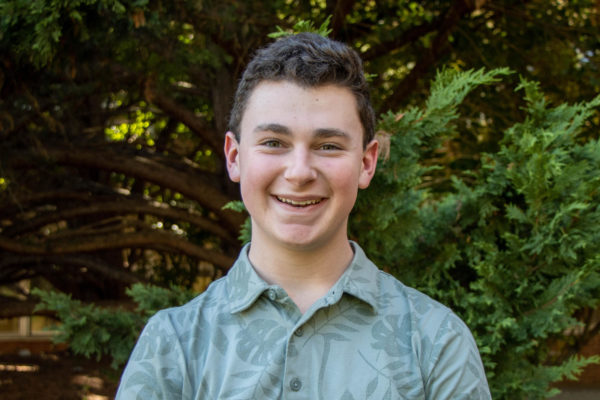By Ben Shapiro, Editor-in-Chief
Conestoga likes to boast its wellness initiatives for students: no midterm or final exams, a 55% grade minimum, and most recently, a new school schedule for next year. I truly believe they are all well-intentioned. But they are failing.
At best, these initiatives serve as mere Band-Aids, glossing over the deeper issue: a nationwide epidemic of escalating stress, particularly pervasive among high schoolers, according to the American Psychological Association, and especially evident among Conestoga’s student body. If Conestoga administration genuinely aims to alleviate the rising levels of student stress, a more radical approach is needed. Conestoga must put a cap on the number of Advanced Placement classes that students are permitted to take.
During the COVID-19 pandemic, Conestoga took strides to alleviate student stress by eliminating midterm and final exams from all classes and implementing a 55% grade minimum policy. Some students, staff and parents initially celebrated these initiatives for lightening the academic load. However, these policies inadvertently provided some students with a safety net, encouraging them to take additional AP courses with reduced fear of academic repercussions.
Two months ago, Conestoga approved a revamped schedule effective next school year, featuring an hour-long “Lunch and Learn” on Wednesdays and Thursdays — an attempt, in part, to carve out designated study time. While seemingly beneficial, this schedule may unintentionally encourage compounded with the pressure cooker that is Conestoga, they have the opposite of their intended effect: Students are taking more AP classes every year.
On its school profile, Conestoga reported that in 2022, students took 2,027 AP exams. Just one year later, in 2023, Conestoga students took 2,511 exams
— an almost 25% increase.
Take it from a student who is mere months away from graduating and took part in Conestoga’s AP culture: My transcript lists AP classes in the double digits and no doubt helped me get into the college of my dreams. But at what cost?
Throughout high school, I knew that to stand out to colleges while at one of Pennsylvania’s best high schools, I had to be the crème de la crème. But when Conestoga offers 29 AP classes and lets students take as many as they want, distinguishing oneself without an ever-increasing AP workload becomes daunting.
Sure, I will be entering college with a few credits to my name but not enough to drastically change my college experience. Had Conestoga imposed a cap on AP classes, I could have distinguished myself among my peers without sacrificing sleep, social life and my general well-being.
It’s not enough to tell students to make decisions that are best for them. My fellow students and I know that a few AP classes could be the deciding factor between a college acceptance or rejection. But, if Conestoga places a cap on the number of AP classes students are permitted to take, many of these fears suddenly vanish.
If Conestoga is genuinely committed to nurturing the holistic development of its students, it must be willing to embrace change, even at the cost of its coveted rankings and temporary discontent — possibly from the students, staff and parents the changes would benefit. The true measure of Conestoga’s commitment to its students lies not in its accolades or rankings but in its willingness to prioritize their well-being above all else.
The question remains: Will Conestoga follow through with its promises and reshape its educational landscape for the betterment of its students?
Ben Shapiro can be reached at [email protected].






















































































